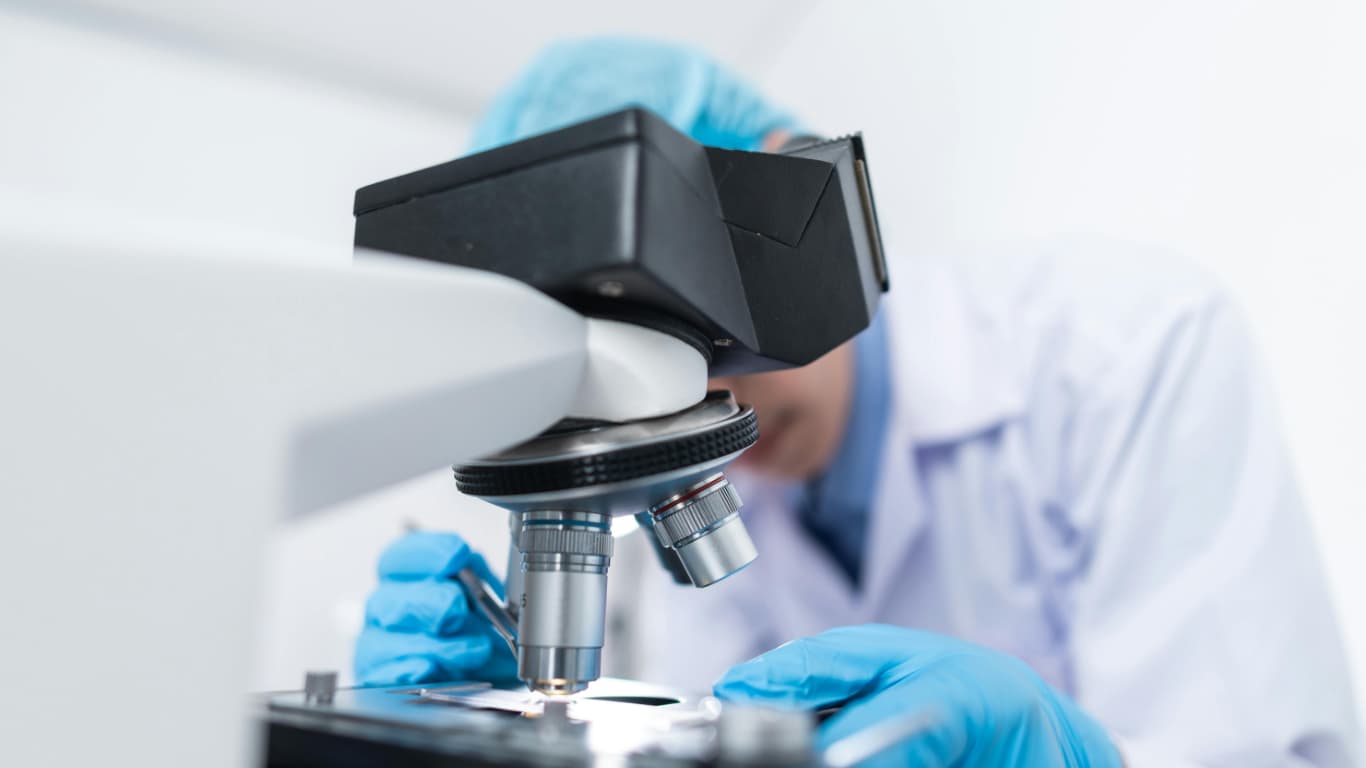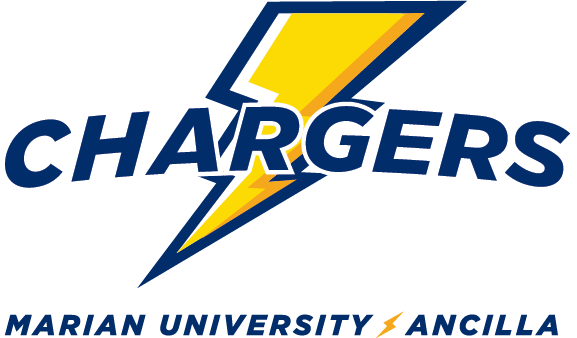Are you interested in the biological systems of plants, animals, humans, and other living organisms? Love the liberal arts and humanities? Consider earning a degree in Biology, which offers the best of both worlds.
Biology is a broad field that branches into many different disciplines and a range of career paths. With this major, you’ll graduate with a firm foundation in both the sciences and humanities.
Learn more about our Department of Biology and faculty

Biology Major

What Will I Study?
To earn a B.A. or B.S. in Biology at Marian, you will complete general education courses, a biology core, and elective courses designed to develop foundational intellectual and knowledge acquisition skills. The program is structured to provide early foundational knowledge through the Principles of Biology sequence, followed by courses at three fundamental levels of biology: Molecular, Organismal, and Ecosystem. In your third and fourth years, you’ll select electives to deepen your expertise in areas aligned with your career interests.
Bachelor of Arts
Requires 46 credits in science and mathematics, including the biology core. At least 18 credits must come from biology courses at the 300-level or above, with up to 3 credits from internship or research coursework applicable. Ideal for careers emphasizing collaboration, communication, and public engagement, such as:
- High school science teacher
- Science writer or marketer
- Medical illustrator
- Patient advocate
- Pharmaceutical sales manager
- Museum curator
- Fundraiser
- Social and community service manager
Bachelor of Science
Requires 60 credits in science and mathematics, including the biology core. At least 22 credits must come from biology courses at the 300-level or above, with up to 3 credits from internship or research coursework applicable. An additional 9 credits may come from interdisciplinary science or mathematics coursework (e.g., Chemistry, Physics, or Public Health). The B.S. prepares you for science-intensive or technical roles, including:
- Laboratory or research positions
- Environmental scientist
- Genetic counselor
- Physician, dentist, or optometrist
- Physician assistant
- Biological science professor
Biology Core
- BIO210/211L: Principles of Biology I (Ecology & Evolution)
- BIO212/213L: Principles of Biology II (Genetics and Cell Biology)
- BIO220: Data Skills for Biologists
Elective Courses
Students select one course from each of the following levels:
Molecular Level Electives
- BIO307: Cellular & Molecular Biology
- BIO315: Genomics and Advanced Genetics
- BIO340: Advanced Microbiology
Organismal Level Electives
- BIO323: Organismal Biology
- BIO329: Plant Biology
- BIO350: Developmental Biology
- BIO373: Zoology
- BIO444: Human Medical Physiology
Ecosystem Level Electives
- BIO320: Advanced Ecology
- BIO321: Conservation Biology
- BIO327: Behavioral Ecology
- BIO363: Restoration Ecology
Additional electives in biology or related STEM disciplines (for B.S. students) allow you to tailor your degree to specific interests, such as cellular and molecular biology, ecology, environmental science, genetics, or physiology.
| Occupation | Growth through 2026 | 2016 Median Salary |
|---|---|---|
| High School Science Teacher | 8% | $58,030 |
| Lawyer or Attorney | 9% | $118,160 |
| Environmental Scientist | 11% | $68,910 |
| Science/Technical Writer | 11% | $69,850 |
| Museum Curator | 13% | $47,230 |
| Fundraiser | 15% | $54,130 |
| Biological Science Professor | 16% | $75,320 |
| Social/Community Service Manager | 16% | $64,680 |
| Dentist | 17% | $159,770 |
| Optometrist | 17% | $106,140 |
| Medical/Health Services Manager | 20% | $96,540 |
| Physician | 15% | $208,000 |
| Genetic Counselor | 28% | $74,120 |
| Physician Assistant | 37% | $101,480 |
*2016 Data
Why Choose a Degree in Biology at Marian?
Marian University’s Biology program combines rigorous academics with personalized support, preparing you for diverse career paths in science, healthcare, education, or advocacy. Key features include:
- Expert Faculty and Mentorship: Our faculty, with expertise in fields like cancer biology, bioinformatics, plant biology, molecular biology, and ecology, provide one-on-one advising to help you achieve your academic and career goals.
- Small Class Sizes: Engage in hands-on learning and build lifelong relationships with peers and professors in small classes and labs.
- Research Opportunities: Explore independent research projects embedded in inquiry-based labs, fostering skills in discovery, communication, collaboration, and critical thinking.
- Unique Facilities: Access the 75-acre Nina Mason Pulliam Ecolab for hands-on experience in restoration biology, exploring native wetlands, prairies, and forests of Indiana.
- Flexible Curriculum: The B.A. emphasizes a liberal arts foundation with courses in writing, art, language, psychology, communications, philosophy, and global studies, ideal for careers requiring interpersonal and advocacy skills. The B.S. focuses on interdisciplinary STEM coursework, preparing you for technical or research-intensive roles.
Internship Opportunities
As you progress through the program, our biology careers course will help you explore your strengths, values, and career interests, guiding you in selecting electives and preparing for internships, jobs, or graduate study. Indianapolis offers a thriving internship market, and students are encouraged to pursue at least one internship, with many completing multiple.
- Healthcare and Life Sciences: Opportunities at companies like Beckman Coulter, Cook Medical, Covance Laboratories, Dow Agrosciences, Eli Lilly and Company, Roche Diagnostics, and Zimmer.
- Environmental and Nonprofit Work: Internships with the Indiana Department of Natural Resources, Indiana State Department of Agriculture, Department of Environmental Management, Indiana Forest Alliance, Indianapolis Zoo, Indiana State Museum, Indianapolis Children’s Museum, Cornea Research Foundation, and more.
